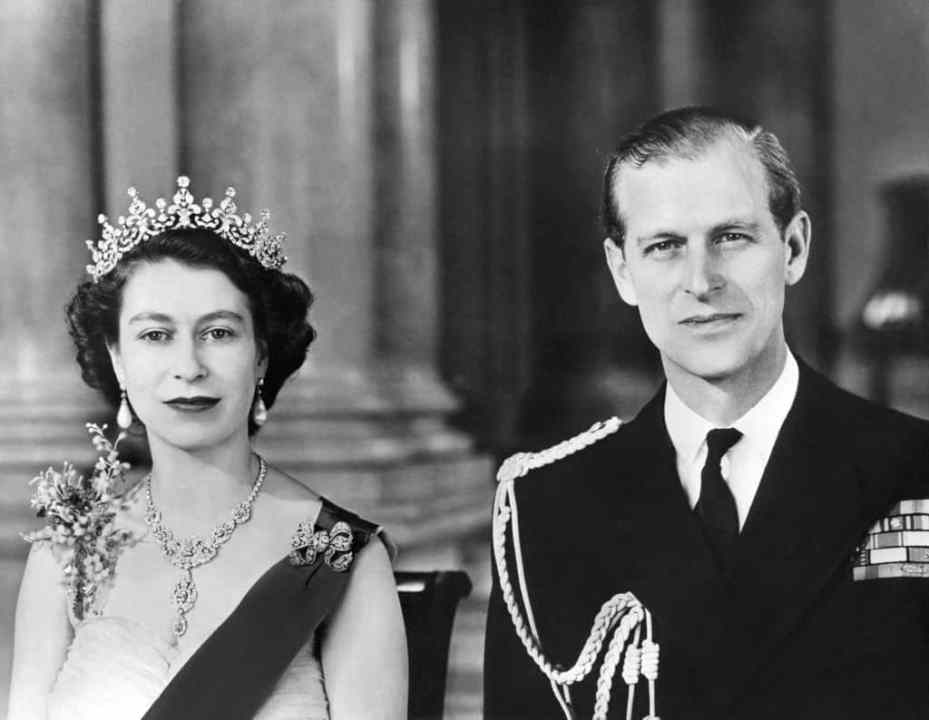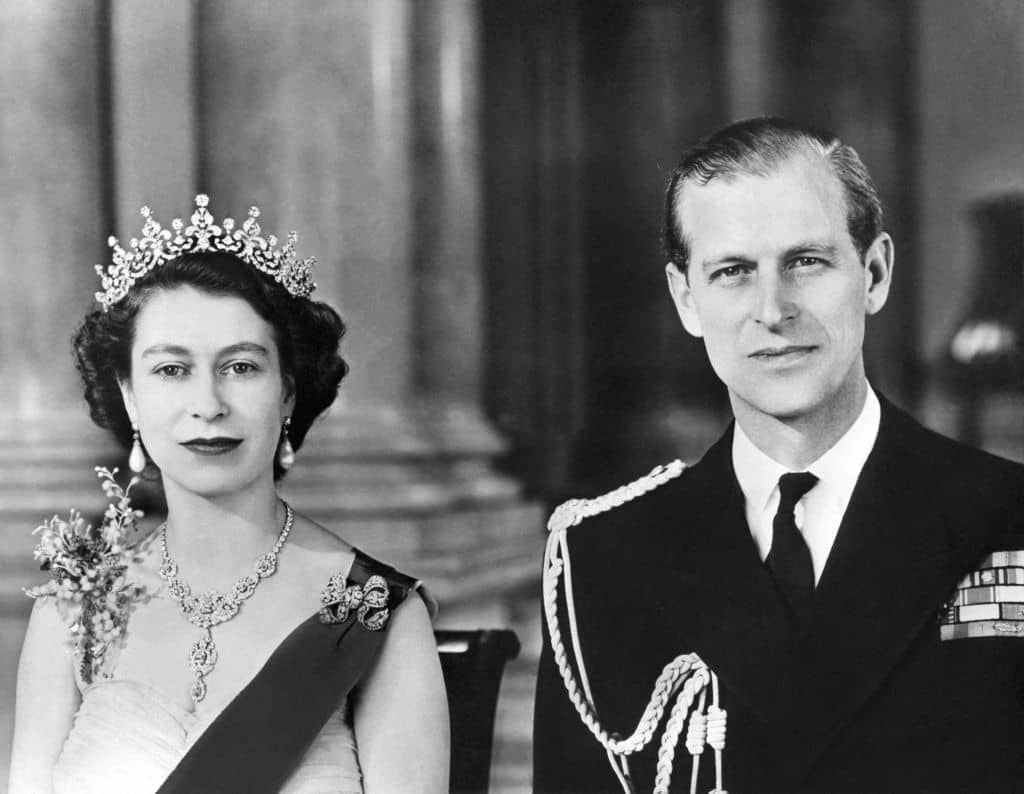The Queen has received deserved tributes from both monarchists and republicans for her extraordinary achievements in the role for which she became unexpectedly destined aged ten and later inherited at the equally unforeseen age of just 26. But she recognised more than anyone the vital part played by her husband Prince Philip, Britain’s longest-serving consort, to whom she said the country owed a debt ‘greater than he would ever claim or we shall ever know’.
When the Queen came to the throne in 1952, she inherited a defined position in the country; her husband did not. Selfless, stoical, dignified, dutiful, she possessed an abundance of qualities that would make her an exceptional monarch. His restless energy and strident opinions made him rather less obviously cut out to play the supporting role. Yet this overtly masculine fireball was now his wife’s subject, required in public to address her as ‘Ma’am’ and to bow when she entered the room.
Within in a year of her accession, Churchill remarked of the Queen that ‘all the film people in the world, if they had scoured the globe, could not have found anyone so suited for the part’. Of Prince Philip, by contrast, the prime minister confided to an aide that, although he wished him no ill, he neither liked nor trusted him and only hoped he would not do the country any harm.
What began as a teenage love affair blossomed into the most effective and enduring partnership in the history of the monarchy
But while the hopes that Churchill invested in the Queen and the New Elizabethan Age would be more than fulfilled over the next seven decades, his misgivings about Prince Philip proved almost equally unfounded. What began (on her part at least) as a teenage love affair blossomed into the most effective and enduring and mutually supportive partnership in the history of the British monarchy.
When they married in 1947, George VI was expected to reign for another 20 years, during which time the prince hoped to forge ahead towards high command in the Royal Navy (where he was regarded as one of its most promising young officers), while also enjoying a relatively carefree life ashore. But the premature death of his father in law precluded all this. The door on the gilded cage was always going to bang shut sooner or later, but barely five years after his marriage, at the age of just 31, was too soon for such a vigorous and headstrong young man to slip happily into his new role of walking a yard behind his wife at public functions.
The comparison was continually made between his position and that of Prince Albert, his great-great-grandfather and immediate predecessor as prince consort, also an instinctive moderniser keen on science and industry. Yet while Albert had much to do as Queen Victoria’s secretary and adviser, Elizabeth inherited an effective department of state in which her husband had no entitlement to lighten her burden. In the early years of his wife’s reign, Philip was continually warned by courtiers against straying into affairs that were not his concern.
Behind the scenes, however, he did much to bolster the Queen’s confidence, enabling her to overcome her shyness in carrying out her public duties in the same way that the Queen Mother had with the stammering George VI. The break-up of his family when he was ten had helped to make him a very self-reliant character, and his toughness and refusal to kowtow was a big part of why she loved him. Those who did not know them better were taken aback by the cross words that passed between them. ‘I’m not going to come out of my cabin until he is in a better temper,’ the Queen told one courtier after a row on the royal yacht Britannia. ‘I’m going to sit here on my bed until he’s better.’ But besides the quarrels there was always plenty of laughter and the overriding impression was of a very happy union.
In the evening, he might attend dinners alone and give speeches while she remained behind to work on her boxes or watch television or do the crossword. But during the day they were in almost constant touch, often breakfasting together, working in adjoining offices at the Palace, lunching together and carrying out many of their engagements as a couple.
Here, too, he was an invaluable foil. The Queen’s conversational gambits were often too stiff, and her smile too controlled to be encouraging. When the possibility of awkward silence loomed, Philip was adept at sauntering up and saying something to let conversation flow. His breezy irreverence was evident even at formal dinners at Buckingham Palace, when he was apt to examine a menu written in elaborate French and remark cheerily to his neighbours: ‘Ah, good. Fish and chips again.’
Prince Philip was instrumental in helping to bring about a less stuffy, more modern monarchy, however his most important contribution was always his steadfast support for the Queen, the longest reigning and finest monarch in British history. As his uncle Lord Louis Mountbatten wrote to Clement Attlee on the eve of their marriage: ‘She couldn’t have picked a better man.’
Philip Eade is the author of Young Prince Philip: His Turbulent Early Life.







Comments